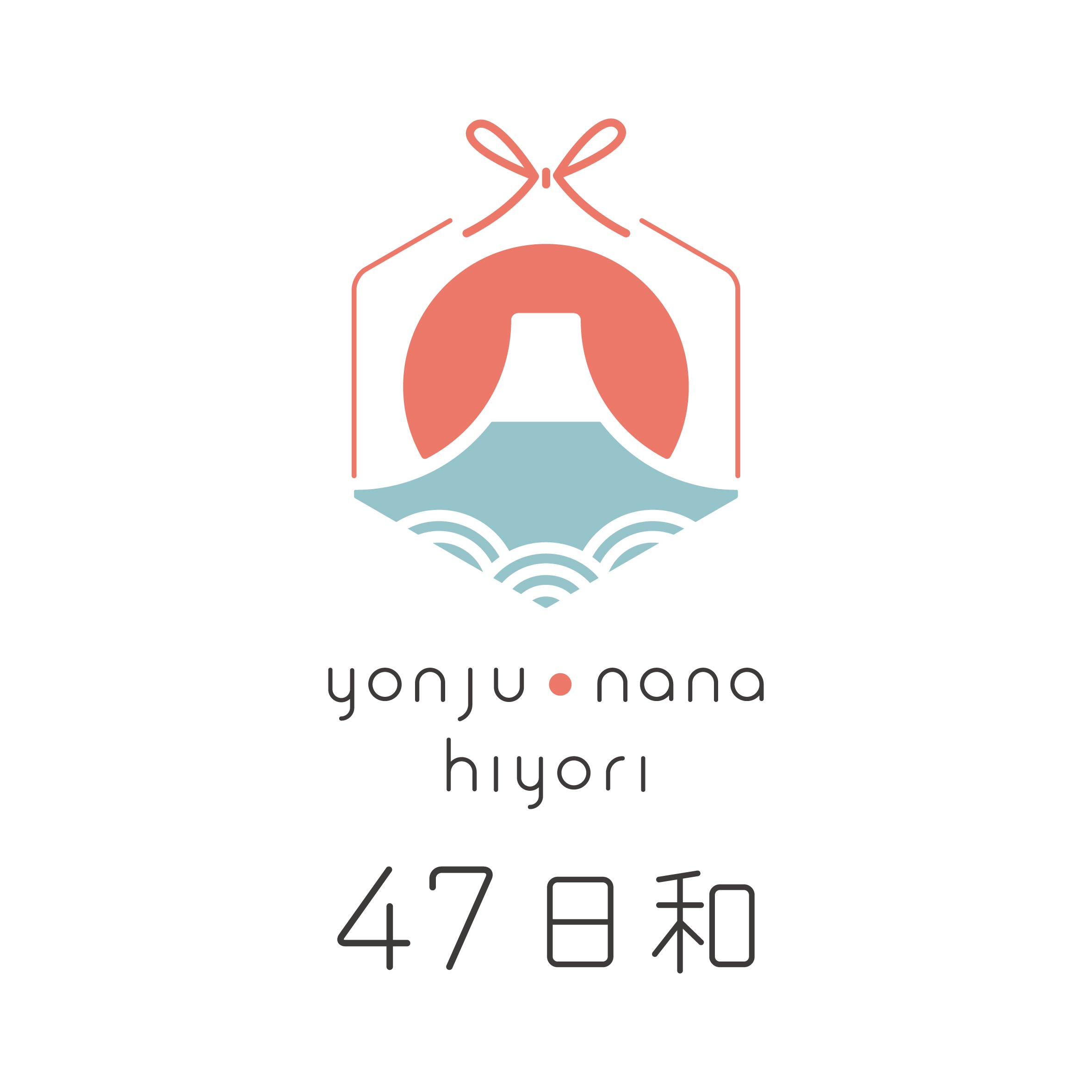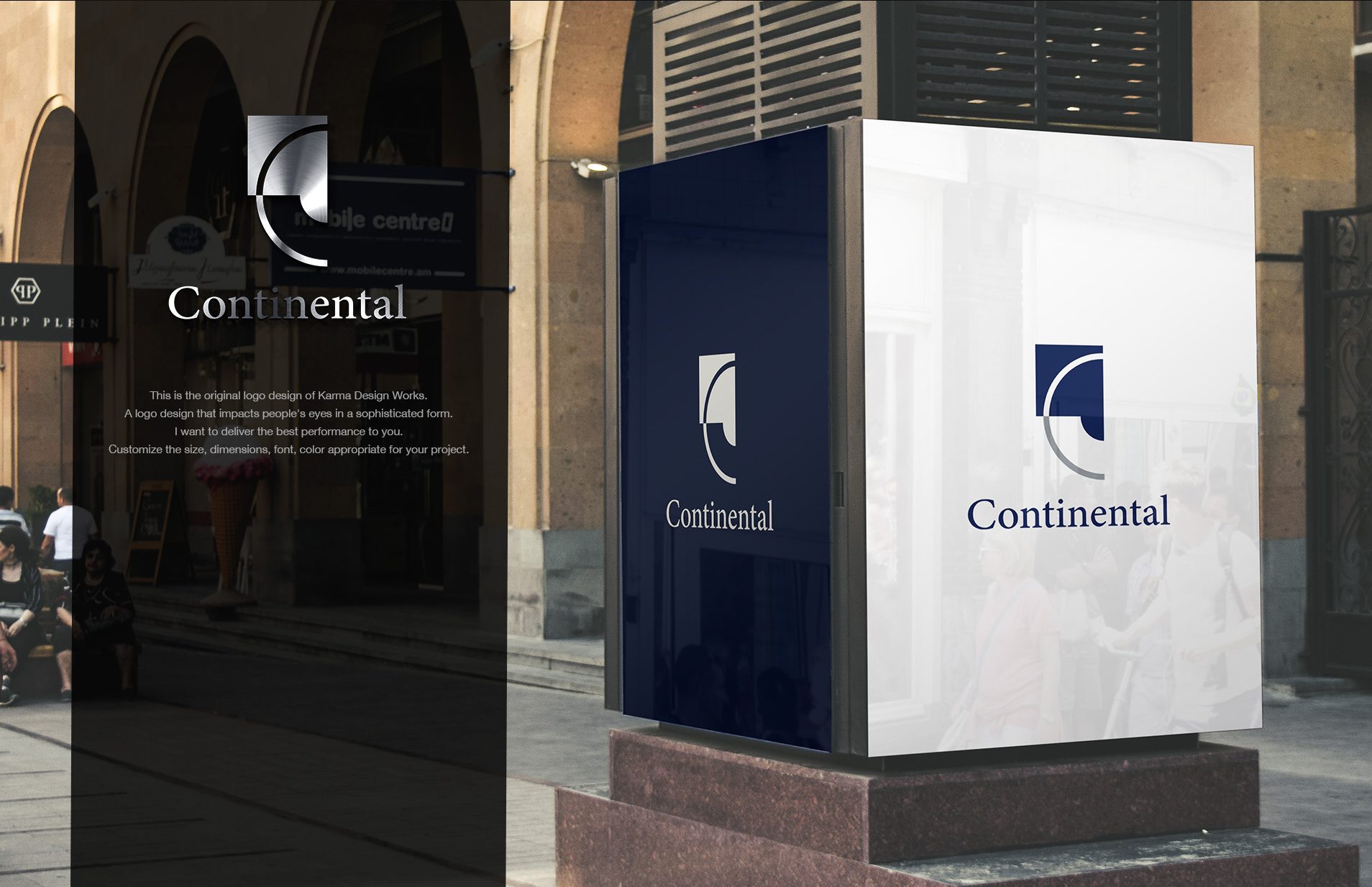Permanent Residence for Highly-Skilled Professional (70- 75 points)
 If I have 70-75 Highly-Skilled Professional (HSP) points, can I apply for permanent residence in Japan for only 3 years stay?
If I have 70-75 Highly-Skilled Professional (HSP) points, can I apply for permanent residence in Japan for only 3 years stay?
 Yes. If you have graduated from a Japanese univ., have a high income, and have scored 70 or more HSP points in the past 3 years, you can apply for PR right now.
Yes. If you have graduated from a Japanese univ., have a high income, and have scored 70 or more HSP points in the past 3 years, you can apply for PR right now.
Permanent Residence for Highly-Skilled Professional(70 points or more)
For Highly-Skilled Professional (HSP) status holders, the length of stay required to apply for permanent residency has been eased. In addition, the length of stay required to apply for permanent residence will be relaxed for people who do not have HSP status (e.g., Engineer VISA, Business Manager, Japanese Spouse Visa, etc.) as long as their HSP Points are 70 points or higher. In other words, you do not need to have HSP status at this time.
If you have had 70 HSP points or more fore 3 years prior to the Permanent Residence Application.
In addition, If you have 80 point or more for 1 year prior to the application, I can apply the Permanent Residence right now.
※For HSP Points 80+ People
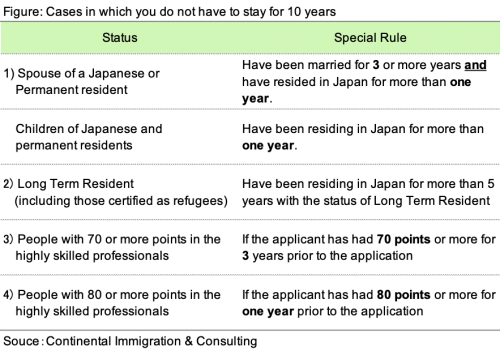
Requirements for Permanent Residence
①Score of 70 or higher in the calculation at the time of application for permanent residence
70+HSP points calculated at the application & 3 years prior to application
In order to promote entry of highly-skilled foreign professionals, a points-based system that provides highly-skilled foreign professionals with preferential immigration control and residency management treatment was introduced on May 7, 2012.
The activities of the highly-skilled foreign professionals are classified into three categories: “advanced academic research activities,” “advanced specialized/technical activities,” and “advanced business management activities.” According to characteristic features of each category of the activities, points are set to each item, such as “academic background,” “professional career,” “annual salary,” and the like. If the total points reach a certain number (70 points), preferential immigration control and residency management treatment will be granted to the relevant person, with the aim of promoting the acceptance of highly-skilled foreign professionals in Japan.
When applying for permanent residency, you must meet the minimum of 70 points at the time of application and 70 points at the time of calculation 3 years prior to the application. In the following, we will provide an example in the case of HSP(1)(b) (e.g. technician).
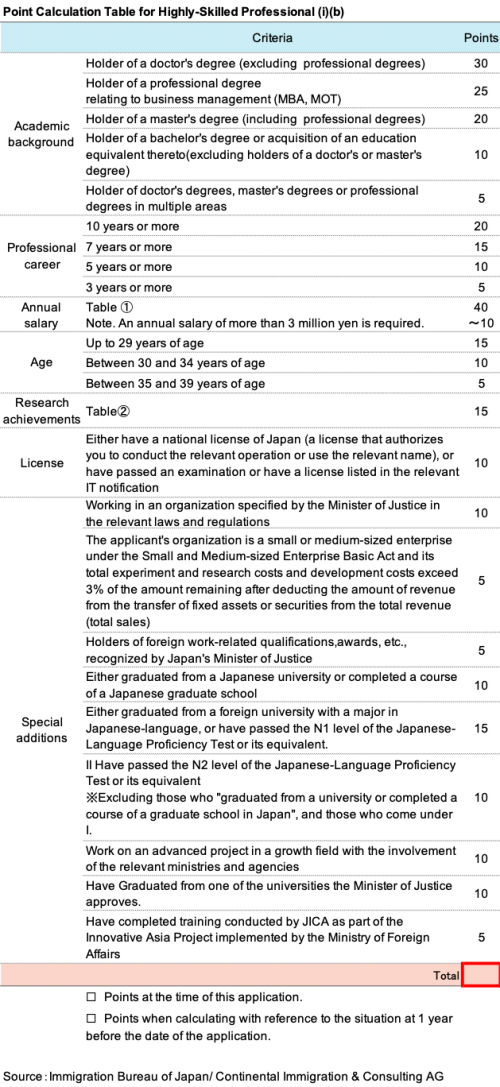
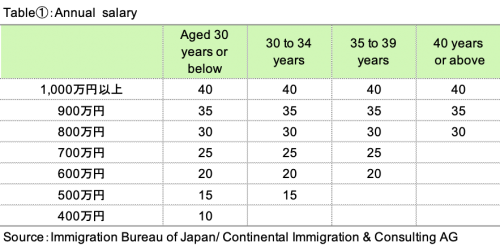
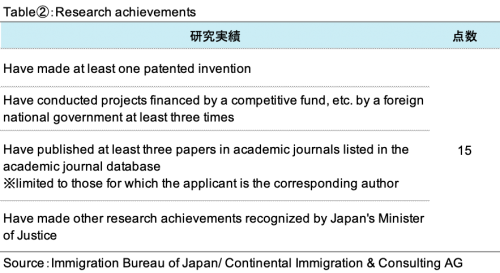
Items to be added to the HSP Point calculation
The main items that receive points for calculating HSP points are (1) academic background (degree), (2) professional career, (3) annual income, (4) age, and (5) Japanese language skills. The higher your degree is, the more points you will get. More points are awarded for longer work experience, higher annual income, and younger age. In addition, points are awarded for Japanese language skills if you have the N1(JLPT) and if you have graduated from a Japanese university.
Graduates of top Japanese and international universities receive additional points. You will also receive points if you have a research record and certain IT qualifications.
To put it simply, graduates of Japanese schools with good Japanese language skills, those with a master’s degree or higher, graduates of top universities, and IT technicians are more likely to score more than 70 HSP points.
CASE STUDY
【CASE1】20s, Master Degree, Japanese School, 3 yeas business experience
For the Highly Skilled Professional(1)(b), the distribution of education (up to 30 points, 10 points from Japanese universities and 10 points from top global schools), annual salary (up to 40 points) and professional career (up to 20 points) has an impact on the total score.
In general, people in their 20s are less likely to have long professional careers and high salaries. Therefore, if you have a doctoral or master’s degree from a Japanese university and/or a top global school, or if you hold a prescribed IT qualification, you are more likely to get a high score.
Because annual income has a significant impact on the calculation of the HSP score, people in their 20s who are in high-paying jobs, such as IT engineers and financial professionals and consulting professionals, are more likely to meet the permanent residency requirements.

【CASE2】Age:35-39, Bachelor degree(NOT in Japan), Salary 7 million JPY
Looking at the case of people in their late 30s, this one has enough years of work experience after graduating from school that you can expect to score points for your work history. Also, generally speaking, the salary level tends to increase with age. In addition, the combination of education, Japanese language skills and qualifications, and other score items can be more diverse than those of younger generations.
However, a master’s degree or higher or a graduate of a top-tier university would be an advantage to score over 70.

Criteria other than HSP points
As mentioned above, people with 70 or more HSP points can apply for permanent residency with a minimum of three years of residency in Japan. However, other requirements for permanent residence will continue to be strictly checked. Other requirements for permanent residency are described below.
②The person has sufficient assets or ability to make an independent living.
③The person’s permanent residence is regarded to be in accord with the interests of Japan.
④You need a GUARANTOR
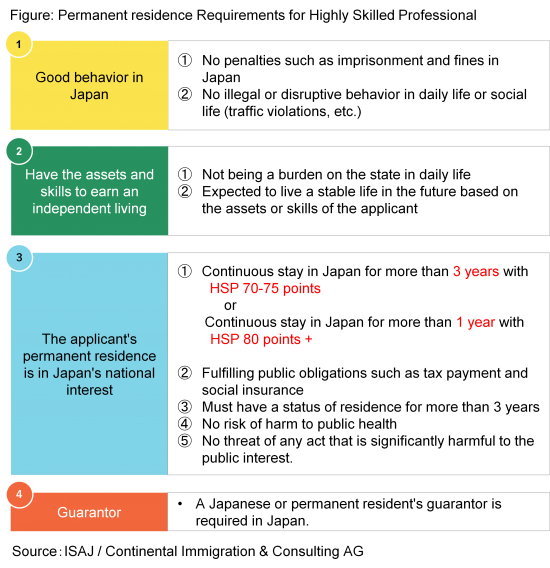
(1)The person is of good conduct.
The person observes Japanese laws and his/her daily living as a resident does not invite any social criticism.
① No legal penalties have been imposed for violating the laws of Japan
The requirement is that no legal penalty has been imposed in violation of Japanese law. It is necessary that at least 10 years have passed since the imprisonment ended. Five years must elapse after the postponement period has expired.
In the case of a fine, if five years have passed since the payment of the fine, etc., it will not be treated as having been punished in violation of Japanese laws and regulations. In addition, it is necessary that protective actions under the Juvenile Law are not ongoing.
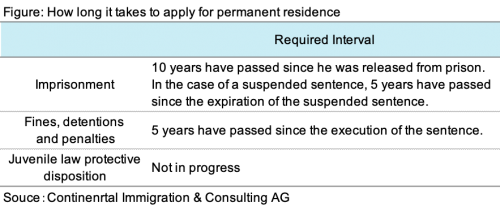
②No minor illegal acts or harassment to society
The requirement is that you do not repeatedly make minor violations of the law that do not constitute a legal penalty or inconvenience the community. Includes fines for traffic offenses and overwork of family members staying on a family visa.

Traffic offense
The penalty for traffic offenses is not a legal penalty, but if you repeatedly pay the penalty, you are repeatedly committing illegal activity. At present, it is difficult to estimate the number of traffic violations etc. in the examination process at least 5 times in the past 5 years and at least 4 times in the past 2 years. For example, it is not often memorized that a ticket was illegally locked due to parking prohibition, so you can get a driving record certificate at a police station and check it.
In the case of serious offenses such as unlicensed driving, drunk driving, and running away, it is necessary to wait five years after payment of fines is completed.
Illegal work of your family (overwork)
If you have a family staying on a family visa and the family is overworked, the applicant will be held liable for family misconduct. In that case, three years must elapse.
(2)The person has sufficient assets or ability to make an independent living.
In addition, the income required for permanent residence should be at least 3 million yen for the past 1-3 years. If you make less than $3,000,000 per year, you will not be recognized as a Highly-Skilled Professional by the immigration authorities.
When you change jobs
If you change jobs, the Immigration Bureau may disallow permanent residence because of your lack of stability. Therefore, it is recommended that you apply for permanent residence about one year after you change jobs. Please note that many foreigners change jobs in a shorter period of time compared to Japanese to improve their career.
Note:Changing jobs before or after applying for permanent residence
Dependents
If there is no dependent family, the income of 3 million yen per year is a guide, but it is necessary to add about 700,000 to 800,000 yen per year for each additional dependent family. For example, if a man has a wife and a child, the annual income will be about ¥ 4.4 million to ¥ 4.6 million for 3 million yen + 700,000 to 800,000 yen x 2 people.
(3)The person’s permanent residence is regarded to be in accord with the interests of Japan.
It is important that the permanent residence of the applicant is in the interest of Japan. Specifically, there are 5 points.
①Must have HSP points of 80 or more and have been residing in Japan for more than one year continuously.
The following people fall into this category.
- Applicants who have been living in Japan for more than 1 year with “HIGHLY SKILLED PROFESSIONAL (a), (b), or (c) status (80 points or more)”.
- Applicants who have resided in Japan for more than one year and who have scored more than 80 HSP points based on a year prior to the date of application for permanent residence.
Applicants residing on a work visa who have met 80 or more points in the HSP calculation for more than a year are eligible.
Also,Must have HSP points of 70 or more and have been residing in Japan for more than 3 years continuously.
This applies in the following cases It is effective if you have fallen below 80 HSP points due to aging or other causes.
- Applicants who have been living in Japan for more than 3 years with “HIGHLY SKILLED PROFESSIONAL (a), (b), or (c) status (70 points or more)”.
- Applicants who have resided in Japan for more than one year and who have scored more than 70 HSP points based on 3 years prior to the date of application for permanent residence.
Applicants residing on a working visa who have met 70 or more points in the HSP calculation for more than 3 year are eligible.
②Public obligations such as tax payment and social insurance
Taxes such as income tax, resident tax, and corporate tax, as well as pensions such as employee pensions and national pensions must be properly paid and not payable. In addition, they are not asking whether you paid the final payment, but rather whether you are paying on time. If you have not paid taxes or pensions, or you have paid but have not paid by the due date, you will not be allowed.
If you do not pay within the payment deadline
If you fail to pay on time, you must have a record of legal payment for the next two years after you pay the outstanding amount. You will also need to explain to the immigration authorities why you failed to pay on time and how to prevent a recurrence. Recurrence prevention measures include the use of bank direct debit or credit card payments.
To begin with, if you are not a member of the National Pension System, you must join the National Pension System, pay your outstanding payments and keep a record of your membership for two years.
Number of legally dependent families
In order to pay taxes, you must be properly dependent on tax law. If a relative who is not originally permitted under tax law is being supported for the purpose of reducing tax payments, permanent residence is not permitted because he / she does not fulfill the appropriate tax obligations (= tax evasion).
③3 or 5 years Visa are Required
Highly-Skilled Professional (HSP) residency status is granted for five years. However, if you have a status which is not HSP, your current status of residence must be for three years or more. If your current status is less than three years old, you must change your status to HSP before you can apply for permanent residence.
④There is no risk of harm from a public health perspective.
Specifically, you must not be addicted to drugs, marijuana, or stimulants, and you must not have contracted any infectious diseases such as Ebola hemorrhagic fever or plague.
⑤It is recognized that there is no risk of committing an act that is materially harmful to the public interest.
The content here is similar to the requirements for conduct in (1).
(4)You need a GUARANTOR
You need a guarantor (身元保証人) when you apply your Permanent Residence for the Japanese Immigration Bureau. Only Japanese national people or “Permanent Resident Status in Japan” are available. Only those with a stable income and who have paid their tax obligations can be a guarantor for permanent residence applications. In other words, a person who is unemployed or has not legally declared personal income is ineligible.
[Responsibilities of guarantor]
The guarantor’s guarantee consists of three parts: 1) payment for accommodation expenses, 2) payment for return expenses, and 3) legal compliance of the applicant.The guarantor under the immigration law is morally responsible and has no legal responsibility.In other words, there is no legal obligation to pay the applicant’s stay and return expenses, and he is not responsible for overseeing any violations of the applicant.
However, a guarantor that has failed to fulfill its moral obligations to the applicant will no longer be able to become an guarantor for another permanent resident application.
(For your reference:How to asking for a guarantor for a permanent residence application)
Examination period from application to permission
The immigration bureau’s website states that the permanent processing period for a permanent residence application is four months, but at the time of writing this report (January 2020), it actually took 8 to 10 months. As with other statuses of residence, the screening period varies by applicant’s status, application time, and immigration bureau.In May 2019, the permanent residence guidelines were revised, and the Immigration Bureau has been required to obtain income and tax payments for the past five years, and the number of documents related to pensions has been stricter. With the stricter examination of permanent residence, the probability of permitting permanent residence has been declining.
FYI:Documentary Requirement
FYI:How to speed up PR examination period
Continental
If you have 80 points or more in HSP, it is easy to obtain a permanent residence visa because the number of years of stay is greatly reduced and a high level of annual income is expected. However, the screening process for obtaining permanent residency is strict and takes a long time, so you will need to be well prepared.
Please contact CONTINENTAL CONSULTING AG for more information.
FYI: See your situation(Self check)
FYI: Japan PR Approval rate?
Fee for HSP-PR:170,000 (Including tax 187,000 JPY)
Obtaining the Japanese government Documents on behalf of you :+50,000 JPY including document’s costs
Professional

Masakazu Murai
Immigration consultant, Financial advisor
18 years experience in Investment Banking at Mitsubishi UFJ Morgan Stanley. He had provided financial advisory more than 500 entrepreneurs and senior management.
During his tenure, he worked as an employee union executive committee member in promoting diversity, including the active participation of foreigners and women in the workplace, and engaged in activities to improve the working environment. He specializes in consulting and financial consulting on the status of residence for foreigners.
Gyoseishoshi Immigration Lawyer
CMA(Japanese financial analyst license)
CFP (Certified Financial Planner)
Master of Business Administration in Entrepreneurship(Hosei Business School)
Continental LINE@ provides news and blogs that are not written on the website. Please click “Add friend” by all means at this opportunity! ! Request from LINE @ is also OK!




